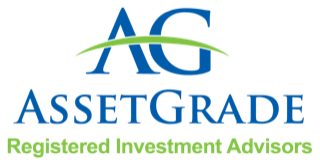Planning to Work Until 65? The Choice May Not Be Yours
By: Susan Powers
One of the first questions we ask clients when gathering information for their financial plan is, ‘At what age would you like to retire?’ Those who continue to enjoy their jobs and the challenges it brings, often plan on working well past age 65. For many others, the answer is often tied to the availability of Medicare, Social Security or other pension benefits.
Unfortunately, as we have seen so frequently, this year in particular, the decision on how long you stay at your job, may not be yours. Voluntary separations and involuntary furloughs and layoffs are impacting employees at all levels.
Be proactive now if you have reasons to believe your company is considering separation packages for your workforce.
Voluntary Separation – Your company offers you a buyout to leave voluntarily
- This may be a benefit depending on the timing. If you are close to your retirement date, the terms of the package may present an opportunity for you to retire sooner than you thought possible. You’ll want to very carefully review the terms of the offer and make sure you understand the impact to your long-term goals.
- I would caution against turning down a package simply because you think a better offer may be coming. The opposite is often true with layoffs following not far behind but without the ‘buyout’ provided in the voluntary offer.
Buyout or Severance Payment
- Think very carefully about how you will use the severance/buyout payment. Consider the timing of the payment, the tax implications and the choices you may have.
- If you are working with an advisor, they can help you with decisions like the pros and cons of paying off debt and creating a tax-efficient income stream to replace your paycheck.
Check in on Your Plan
- Now is also a great time to make sure your emergency savings account hasn’t dwindled down and review your expenses to see where you can make smart choices. Make an estimate of your total monthly expenses, then try to build 3 - 12 months’ worth of expenses in your emergency savings account.
- How are your savings invested? The markets have recovered from 1st quarter losses. If you think you may be retiring sooner than originally planned or have a higher level of uncertainty regarding your current position, now is a good time to re-evaluate your risk profile and make sure your investments are properly aligned to help you meet your goals.
We hope you are not faced with uncertainties regarding your job. However, if you are or think you may be, you should reconsider various potential ‘What If’ scenarios regarding how long you plan to work. Please don’t hesitate to reach out. We are here to help.

